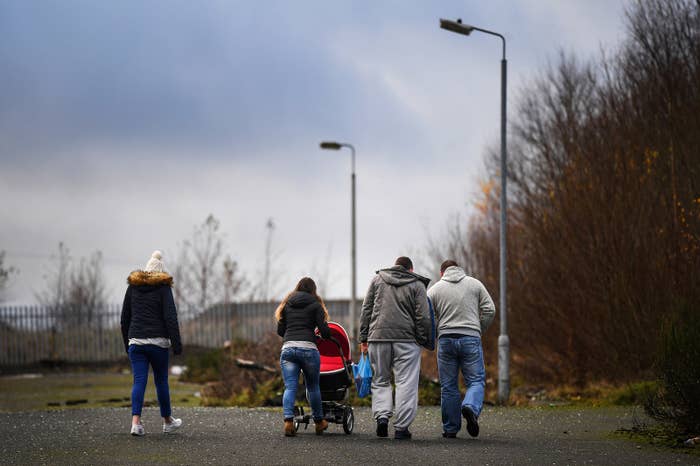
A groundbreaking study has found that people living in poverty are being denied state-funded legal advice.
The research, commissioned by the Law Society, has found that people are being blocked from accessing justice despite living below the poverty line.
BuzzFeed News has been investigating how legal aid cuts passed into law in 2012 have impacted on people across the country, leaving thousands to represent themselves in court with no legal training. The Ministry of Justice has recently begun a review of the impact of the legislation.
The Law Society study is believed to be the first of its kind to give categorical proof that legal aid is being denied to people who are already living in poverty.
Anyone whose household earns more than £2,657 a month before tax is excluded from legal aid – and many who earn substantially less than this are only eligible for partial financial help. Some of those who qualify for legal aid but are not on state benefits still have to make a contribution towards the cost – at a level which is often far beyond their means.
The study compared various cost of living tests with legal aid thresholds. It found that at the maximum level of disposable income at which legal aid is allowed, households are already below the poverty line before any legal bills: Typically, they had disposable incomes 10% to 30% too low to afford a minimum standard of living.
Richard Miller, head of justice at the Law Society, told BuzzFeed News: “As far as I’m aware this is the first analysis that’s been done of actually how the means test bites.
“What surprised me is just how stark the picture is. That people well below the minimum income standard are either ineligible or are having to make contributions which they clearly can’t afford. Practitioners have been reporting to us for a number of years that they have clients who are offered legal aid to subject to a contribution and the clients are unable to afford the contributions and therefore have to turn down the offer.”
The means test has not been increased in line with inflation since 2010. “We hope that the government will review the means test more thoroughly in light of this report,” Miller said.
A Supreme Court ruling in July last year found that employment tribunal fees were unlawful because households on low incomes were expected to sacrifice an acceptable living standard to afford legal costs. The Law Society argues that the means testing that decides whether someone qualifies for civil legal aid is putting people in the same situation.
Shadow justice minister, Richard Burgon MP, said: “This is yet more damning evidence of how the Conservatives’ decision to slash access to legal aid is pricing thousands of people out of our justice system. No one should have to choose between paying for food or heating and getting legal support.
The Conservative government should stop delaying its own review into its legal aid cuts and come forward with serious proposals to repair the damage these cuts have done to access to justice."
BuzzFeed News revealed last year that the number of people seeking help from the Personal Support Unit in civil cases because they have no lawyer is up 520% since 2011.
While most people on full benefits automatically qualify for legal aid, those in the lowest paid jobs usually have to pay a contribution towards their legal costs.
Donald Hirsch, a professor of social policy at Loughborough University, who conducted the research, told BuzzFeed News: “What surprised me was that you’ve got all these detailed rules but it seems to amount more or less to the fact that if you’re not on means tested benefits there are very few cases where you’ll get full legal aid.
“If you take it as a given that someone on very low incomes is not going to be able to make contributions it seems to almost to amount to saying ‘if you’re working you can’t get help’. We know that a lot of people who are working are classed as in poverty. That’s what surprised me was just how low the bar had been set and the fact that it really disqualifies you if you work.”
The means test is also outdated in criminal courts. BuzzFeed News revealed that there are now increasing numbers of criminal defendants who do not qualify for legal aid and cannot afford a lawyer. An exclusive survey of magistrates in 2017 found that 30% of people in criminal cases before them had no lawyer, up from 24% in 2014.
A Ministry of Justice spokesperson said: “Maintaining access to justice remains at the heart of our legal aid system, and last year we spent over £1.6bn to ensure help is available for those who need it most.
“We are conducting a wider review of our legal aid reforms, including provisions in civil cases.
“We also want to see disputes resolved away from court wherever possible, using approaches like mediation which can be less stressful, quicker and cheaper.”

